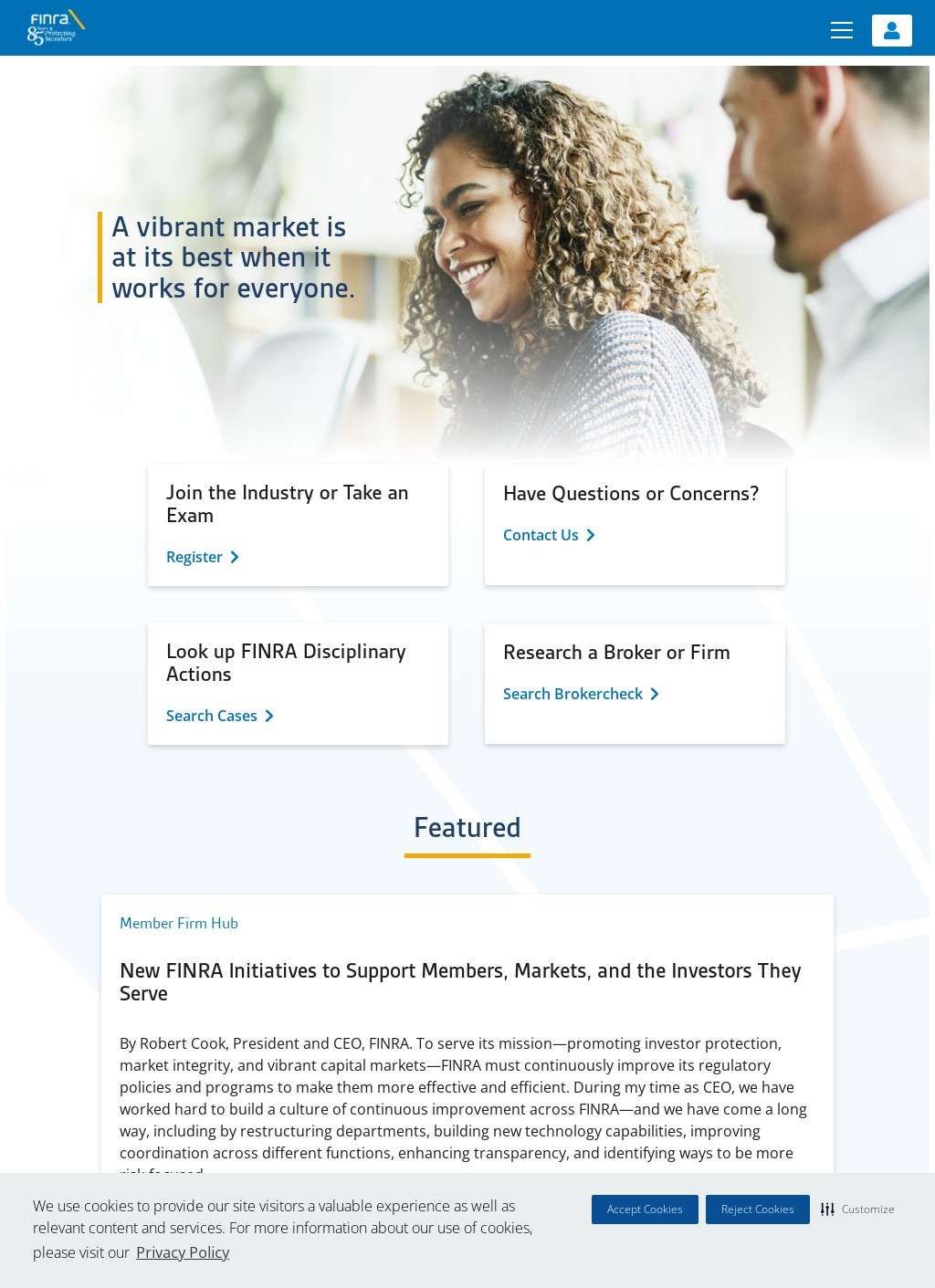The Financial Industry Regulatory Authority operates as a crucial watchdog in the cryptocurrency investment landscape, bringing decades of experience in securities regulation to bear on this emerging asset class. As the largest non-governmental regulator overseeing all securities firms doing business in the United States, FINRA supervises approximately 3,500 firms and 620,000 registered brokers. When these traditional financial professionals venture into cryptocurrency, FINRA's oversight follows, creating a bridge between established investor protections and the new world of digital assets. This unique position allows FINRA to identify and address risks as cryptocurrency increasingly intersects with traditional securities markets.
FINRA's approach to cryptocurrency reflects its core mission of investor protection and market integrity. Rather than waiting for problems to emerge, the organization has proactively engaged with member firms about their cryptocurrency activities since 2018. Through regulatory notices and ongoing dialogue, FINRA encourages firms to report any involvement with digital assets - whether directly or through affiliates. This comprehensive monitoring helps the organization understand how traditional brokers are incorporating crypto into their business models and where new risks might emerge for retail investors.
The organization's cryptocurrency oversight encompasses multiple specialized teams working in coordination. The Crypto Asset Investigations unit conducts targeted examinations of firms' digital asset activities, uncovering compliance failures and potential fraud. The Crypto Asset Surveillance Team monitors market activity for signs of manipulation, particularly schemes that use cryptocurrency hype to pump traditional securities. The Blockchain Lab explores how distributed ledger technology might enhance regulatory capabilities. Together, these units create a comprehensive framework for understanding and addressing cryptocurrency-related risks.
Educational resources from FINRA specifically target the intersection of traditional investing and cryptocurrency. The organization recognizes that many investors first encounter crypto through their existing brokerage relationships, making it crucial to clarify what protections do and don't apply. FINRA explains why cryptocurrency held at a traditional broker might not enjoy SIPC protection, even if other assets in the same account are covered. Resources detail how registered representatives' outside business activities in crypto could create conflicts of interest. This targeted education helps investors understand the boundaries between regulated and unregulated activities.
FINRA's examination findings reveal common problems investors encounter when traditional firms offer cryptocurrency services. Communications with the public often overstate the safety of crypto investments or fail to adequately explain risks. Firms sometimes blur the lines between their regulated broker-dealer activities and separate crypto offerings. Supervisory systems struggle to monitor registered representatives' personal crypto trading or outside business activities. By publicizing these findings, FINRA helps investors recognize potential red flags in how their brokers handle cryptocurrency.
The organization's BrokerCheck system provides a powerful tool for cryptocurrency investors to research financial professionals. Before trusting someone offering crypto investment advice, investors can verify their registration status, examine their professional history, and review any disciplinary actions. This free service becomes particularly valuable as bad actors attempt to leverage legitimate-sounding credentials to promote cryptocurrency scams. FINRA actively promotes BrokerCheck usage, recognizing that informed investors make better decisions about whom to trust with their money.
Investor alerts from FINRA address emerging cryptocurrency threats with practical specificity. When "pig butchering" scams emerged combining romance fraud with crypto investing, FINRA published detailed warnings explaining the tactics used. As social media investment groups promoting crypto proliferated, the organization exposed how these schemes operate. Each alert provides not just warnings but actionable advice - red flags to recognize, questions to ask, and steps to take if targeted. This practical approach helps investors protect themselves in real-world situations.
Collaboration between FINRA and other regulators strengthens cryptocurrency investor protection. Joint statements with the SEC clarify regulatory expectations for firms handling digital assets. Information sharing with law enforcement helps prosecute crypto fraudsters who target retail investors. International cooperation through IOSCO addresses cross-border schemes that exploit regulatory gaps. FINRA's participation in the regulatory ecosystem ensures that investor protection doesn't fall through the cracks as cryptocurrency markets evolve.
The organization's dispute resolution services increasingly handle cryptocurrency-related cases. Through arbitration and mediation, investors can seek remedies when problems arise with regulated firms' crypto offerings. FINRA arbitrators receive training on digital asset issues to ensure fair hearings. The public award database allows investors to research how similar disputes have been resolved. While these services only apply to registered firms, they provide an important avenue for redress that doesn't exist in unregulated crypto markets.
Market surveillance by FINRA reveals sophisticated schemes targeting cryptocurrency investors. Pump-and-dump operations use coordinated social media campaigns to inflate low-priced stocks of companies claiming blockchain ventures. Unregistered brokers operate from overseas, using cryptocurrency's pseudo-anonymity to avoid detection. Market manipulation techniques perfected in penny stocks migrate to crypto markets with devastating effects. By exposing these schemes, FINRA helps investors understand that cryptocurrency doesn't exist in isolation from traditional fraud tactics.
The evolving regulatory landscape requires FINRA to continuously adapt its approach to cryptocurrency. New products like spot Bitcoin ETFs create fresh challenges for supervising member firms. DeFi protocols raise questions about what constitutes brokerage activity in decentralized systems. NFTs blur lines between collectibles and securities. FINRA's ongoing engagement with these developments ensures that investor protection keeps pace with innovation, providing a stable framework as markets evolve.
Through its comprehensive approach to cryptocurrency oversight, FINRA demonstrates how traditional regulatory expertise can adapt to digital asset challenges. The organization doesn't try to regulate cryptocurrency directly but focuses on ensuring that when regulated entities touch crypto, they maintain appropriate standards. This targeted approach provides investors with islands of protection in an otherwise unregulated sea. As cryptocurrency continues integrating with traditional finance, FINRA's role in safeguarding investors at these intersection points becomes ever more critical.
